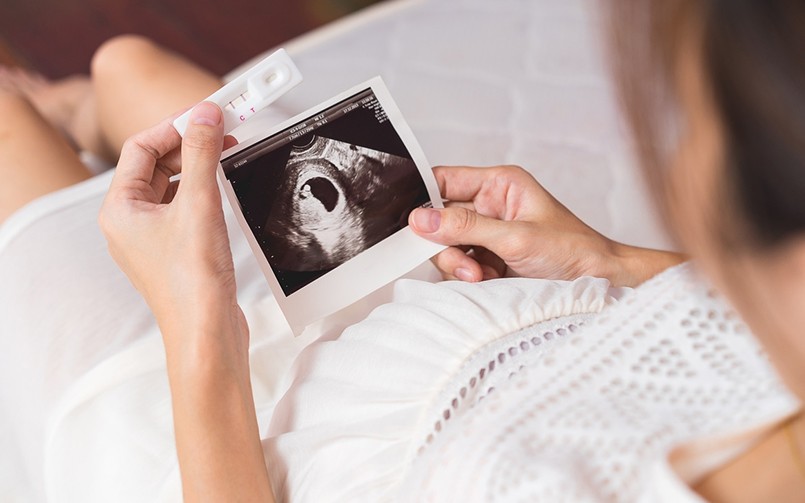IVF chances of success

What does the statistics of the success of the IVF procedure say?
If pregnancy does not occur for a long period of time, the couple should think about undergoing an examination and possible in vitro fertilization. The reproductologist, gynecologist and andrologist provide a conclusion with a description of the problem, and possible ways to solve it, having studied all the features of the partners.
When diagnosing infertility due to the physiological characteristics of the body, general incompatibility, hormonal imbalance, extracorporeal fertilization significantly increases the chances of successful conceiving.
There are several common and unconfirmed misconceptions about IVF.
Among them there are the following myths:
- artificial insemination always works;
- if it turned out to conceive in this way, then it will work out to bear the child;
- IVF technique is basically ineffective.
All of these theories are wrong. To get a reliable picture and calculate the percentage of success, it is worth studying the statistics.
Today, about 35-45% of women can successfully get pregnant at the first time after IVF.
At first it seems that the percentage is quite low. But, looking at the usual dynamics in the natural cycle, without the use of contraception, for a full-fledged healthy body, it becomes known that the probability of conception at the time of ovulation is fixed at around 15-25%. Accordingly, the success rate of 35% for the in vitro fertilization method is much higher than the average data.
IVF Prospects in Different Age Groups
The most favorable period for conceiving is the woman’s age up to 30 years. For this group the probability of embryo formation reaches about 42-45%. The rates steadily decline with the age. Fertility doctors indicate that the chance of a successful protocol for women in the age of 30-35 is 35%, after 40 years it decreases to 10-15%.
The age of a man does not play a decisive factor if the spermorgamma does not show any deviations from the medical norm.
The female body and its common problems, regardless of age, that reduce the success rate of the procedure:
| General health | Reproductive system | Condition of the uterus | Egg state |
|---|---|---|---|
| The presence of chronic diseases of any organs and systems | Adhesions in the pelvic organs | Diagnoses: polyps, endometrial hyperplasia, thin endometrium | PCOS (polycystic ovary syndrome) |
| Hormonal imbalance, congenital or acquired | Endometriosis | Myoma of the uterus | Anovulatory cycles, decreased AMH reserve |
| Deterioration of health at the time of medical preparation for IVF | Disorders of blood circulation in the ovaries | Congenital disorders in the structure of the organ | Genetic problems (diagnosed by karyotyping) |
Unsuccessful artificial insemination can occur due to the “male” problems, namely the presence of inflammatory processes of the genitourinary system, hormonal disorders, genetic problems, reduced activity of spermatozoids.
Number of attempts and chances of success
If a woman was previously pregnant and gave birth to a child, then this increases the probability of a second pregnancy. This applies as to the natural process of conception so as to the IVF protocol.
It is not always a possibility to get pregnant on the first try. For some couples, the lack of a positive outcome is a big stress factor. But, according to the statistics, the second and the third attempts have a significant importance. In medical practice, there are successful options even at 10, 20 and 44 attempts.
The main thing in vitro fertilization is to carefully monitor your overall health and do not despair. Try again if the body’s reserve allows it.
IVF pregnancy: risks and complications
Certain risks are always present, since a woman has to undergo rather powerful drug stimulation. This is necessary to obtain several mature eggs (up to dozens) required for the sperm transplantation.
Problems can arise both during stimulation (empty follicle syndrome, when there is no egg cell), and at the time of puncture, embryo replanting.
There is a separate option for the formation of the multiple pregnancies, but for many expectant mothers this is rather a plus. Two wonderful babies will be born at once.
Women are also interested in the risk of oncological diseases, especially those which are connected with changes in hormonal levels. This problem has been considered by doctors for several years, and today there are no convincing data on the dangers of IVF.
Patients can consciously take risks, hiding certain nuances from the doctor, but a good specialist would rather choose the option of an unsuccessful procedure than allow complex diseases to arise against the background of hyperstimulation.
What do doctors use to increase the likelihood of the successful IVF?
There are several options for increasing the likelihood of successful IVF fertilization.
There are the procedures:
- ICSI technique. Implies the introduction of the most viable sperm into the cytoplasm of the egg.
- IMSI technique. It is used for preliminary microscopic examination of sperm activity just before ICSI in order to increase the chances of conceiving. Similar methods are useful in a natural, normal sperm renewal cycle.
- Fertile Ultimate microfluidic chipping. The newest diagnostic method for determining the most motile and fastest spermatozoa, with a morphologically correct structure and without violations in the genetic code.
- PGD diagnostics. An effective and only way to exclude abnormalities in the chromosome set of the future embryo. The procedure for preimplantation genetic diagnosis increases the chances of successful IVF without termination of pregnancy.
You should also independently increase the chances of fertilization:
- to refuse from bad habits;
- to increase the amount of physical activity for more effective metabolism;
- to improve the diet, enrich it with useful vitamin supplements, fatty acids, trace elements;
- to reduce stress level.
The IVF procedure is expensive, but for many couples it is an opportunity to become parents when diagnosed with infertility of unknown origin, hormonal disorders. Both partners should make a decision on planning and maintaining the protocol, and then narrow-profile specialists will help your baby to be born.


